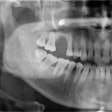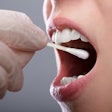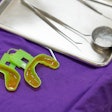Many U.S. dental hygienists report that they aren’t paid fairly, have few chances for advancement, and receive little support despite experiencing pride and teamwork in their work. The study was published on September 1 in BMC Health Services Research.
These feelings of dissatisfaction may contribute to instability in the overall workforce, the authors wrote.
“Addressing systemic dissatisfaction while reinforcing drivers of satisfaction may help sustain a resilient dental hygiene workforce and support access to care,” wrote the author, Linda Straub-Bruce of the Lake Erie College of Osteopathic Medicine, in Erie, PA.
A dental workforce shortage existed in the U.S. before COVID-19, but it reached a near-crisis level during the pandemic. Unfortunately, it hasn’t recovered. The strained workforce has had a ripple effect, negatively affecting patients, communities, dental practices, and the overall healthcare system. As the shortage continues, it’s critical to understand satisfaction and dissatisfaction trends among hygienists.
To understand hygienists' feelings about work, a cross-sectional quantitative survey was distributed in 2024 to licensed dental hygienists in Pennsylvania using convenience sampling at two professional events. A 36-question survey was completed by 328 hygienists, and descriptive statistics were used to summarize overall satisfaction levels, according to the study.
Of the respondents, more than 98% were women, nearly 53% were age 55 and older, and approximately 72% worked at private dental practices.
Although hygienists reported high satisfaction with intrinsic motivators, including taking pride in their work (mean score = 5.31) and the relationships they developed with co-workers (mean = 5.06), they reported significant dissatisfaction with income, promotional opportunities, and organizational support.
Nearly 61% of hygienists disagreed that they were fairly paid, and about 87% agreed there were few chances for them to be promoted. Furthermore, hygienists frequently were frustrated with internal rules impeding them from working effectively. Together, the findings suggest that salary is a problem, but more money alone may not improve turnover unless it comes with greater career opportunities, Straub-Bruce wrote.
Nevertheless, the study had limitations, including the use of self-reported data. This presents possible response bias, including recall bias, the author wrote.
To ensure workforce sustainability, safeguard access to oral healthcare services, and elevate the standing of hygienists, a coordinated, multidimensional approach is needed, she wrote.
“Addressing dissatisfaction through equitable pay and benefit models, defined advancement ladders, supportive supervisory structures, and streamlined administrative systems may help stabilize the dental hygiene workforce,” Straub-Bruce wrote.




















